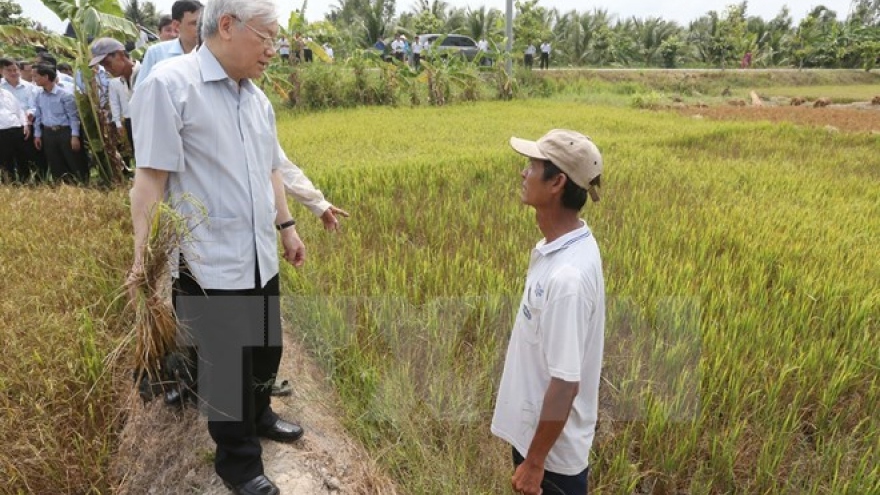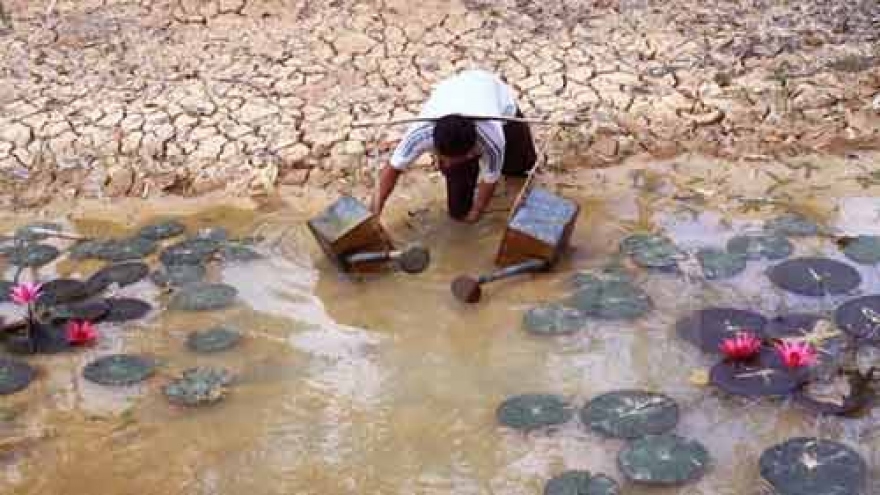Adaptation to saltwater intrusion critical to Mekong Delta
The Mekong Delta needs to adjust to saltwater intrusion in the long term, as the ongoing drought and salt water encroachment are challenging response efforts, experts said.
Local climate change scenarios should be aligned with possible changes in soil conditions and economic situation as well as economic policies to serve as a foundation for overall planning, including adaptation to saltwater intrusion, he noted.
 |
Another effective solution for the Mekong Delta is storing water in the flood season for use in the dry season, said Associate Professor Le Anh Tuan, Deputy Director of the Mekong Delta Research Institute for Climate Change.
Ponds and canals dug for flood water storage will help mitigate flood impacts in the rainy season, and that water will, in turn, help reduce saltwater intrusion in the dry season, he added.
Meanwhile, how to use fresh water efficiently is another problem, Tuan said, elaborating that saving one cubic metre of water is easier than seeking an equivalent amount of water in the Delta amid the severe drought and saline encroachment.
He urged residents to employ technical solutions for water efficiency, such as avoiding farming water-intensive crops and livestock, irrigating at appropriate points of time and using waste water, and applying efficient irrigation measures.
The Mekong Delta has nearly 4 million hectares of farmland, accounting for almost 30% of Vietnam’s total farmland area, with over 50% under rice.
Drought and salinisation have seriously affected 11 out of the 13 Mekong Delta provinces, with nearly 160,000 hectares of the winter-spring rice crop damaged.



